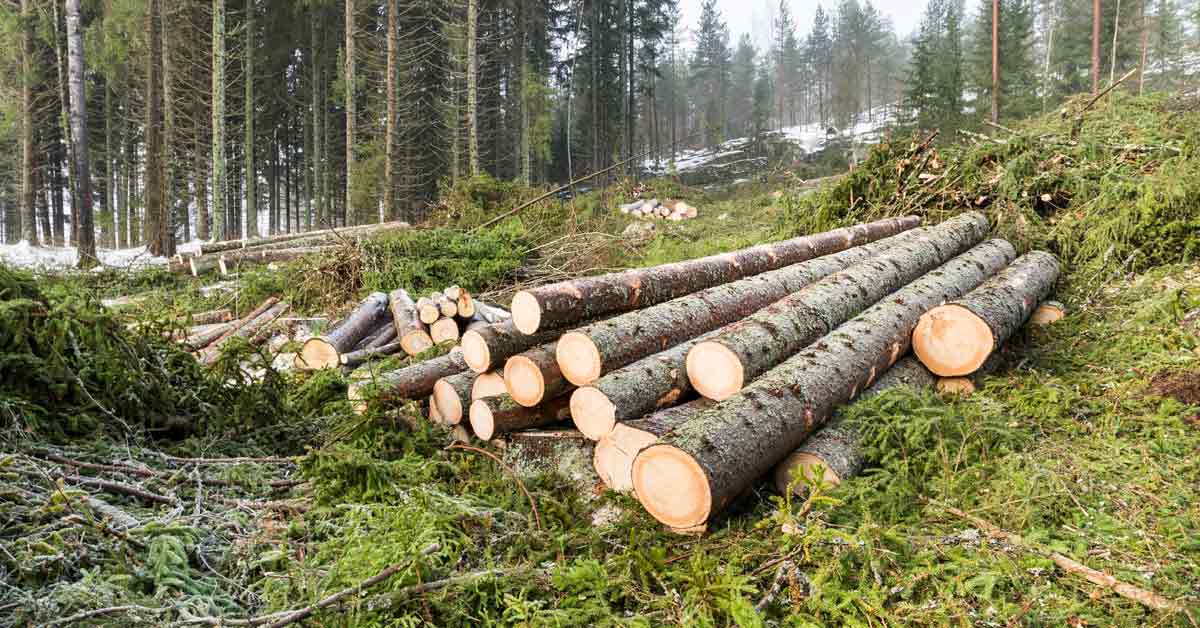In a joint letter to Commission President Ursula von der Leyen, Prime Minister Ulf Kristersson and Prime Minister Petteri Orpo said a “much decreased” harvest would have “dire consequences” for their economies and the supply of timber and forest biomass across the EU.
The two Nordic countries, which have the highest forest coverage in the European Union, said recent guidance and obligations under the EU’s Land Use, Land-Use Change and Forestry (LULUCF) framework make it unlikely they will meet targets for the 2021–25 and 2026–30 periods. They cited lower forest growth linked to droughts and pests, as well as market disruption following Russia’s full-scale invasion of Ukraine, which has increased demand for domestic wood products.
Under the revised LULUCF Regulation, the EU has set a 2030 objective of 310 million tonnes of net carbon removals from land and forests, with binding national contributions. The Commission has framed the sector as a key component of the bloc’s path to climate neutrality by 2050.
Kristersson and Orpo asked the Commission to reassess the contribution expected from the forestry sector and to provide clearer access to the regulation’s flexibilities in the ongoing compliance process for the first LULUCF commitment period. They also called for further technical work on “forest reference level” guidance to reflect methodological changes, natural variability in growth, natural disturbances and increased emissions from organic soils.
The prime ministers said forests are significant for employment and trade in both countries. According to the letter, wood-based products account for more than 10% of Sweden’s exports and almost one-fifth of Finland’s exports; more than 200,000 people are directly employed in the sector across the two economies. Reuters also reported that reduced harvesting would “entail dire consequences” for jobs and output, reflecting the letter’s wording.
Stockholm and Helsinki stressed they support a swift adoption of an EU-wide net emissions reduction target of 90% by 2040, covering both emissions and removals, provided the final framework accounts for uncertainties in the land sector, technology neutrality and cost-effectiveness. They argued that over-estimating the sector’s future carbon sink would be counter-productive for climate policy and competitiveness.
The request comes as Europe’s land carbon sink shows signs of weakening. The European Environment Agency reported in June that land and forests across the EU are absorbing less CO₂ than expected, putting 2030 LULUCF targets at risk without additional measures. Researchers affiliated with the European Commission’s Joint Research Centre have likewise warned that declining sequestration capacity complicates climate planning that relies on increasing removals.
Industry groups in the Nordics have argued that forest management and wood substitution effects—replacing fossil-based materials with timber, pulp and bioenergy—form part of the EU’s decarbonisation toolkit, provided sustainability criteria are met. Environmental organisations and scientists have countered that over-logging and monocultures can depress carbon sinks and biodiversity, and have urged caution in counting future removals. Recent scientific assessments suggest Europe’s forests removed roughly a third less CO₂ in 2020–22 than in 2010–14, owing to factors including harvest intensity, drought, wildfires and pests.
In their letter, the Swedish and Finnish leaders asked the Commission to recognise substitution effects “so we can harness the full potential of forest products in the green transition and a thriving bioeconomy”, while keeping climate objectives intact. They said both governments are improving monitoring methodologies and want parallel advances at EU level.
The Commission is coordinating with member states on preparations for LULUCF compliance for the first period and is due to bring forward the implementing work towards a 2040 climate target. The prime ministers said this offers an opportunity to shape a “post-2030” land-use framework that reflects realistic removal potential and inherent uncertainties without undermining the sector’s role in supplying biomass and supporting rural employment.
Reuters reported that the joint letter challenges indicative increases in annual net CO₂ uptake of around 4 million tonnes for Sweden and 3 million tonnes for Finland by 2030 as unrealistic under current conditions. Both governments maintain that they remain committed to EU climate goals and will continue to engage with the Commission on compliance options and technical corrections.
Image source: resourcewise.com
Finland facing up to €7 billion EU fine over deforestation
Post Views: 844
